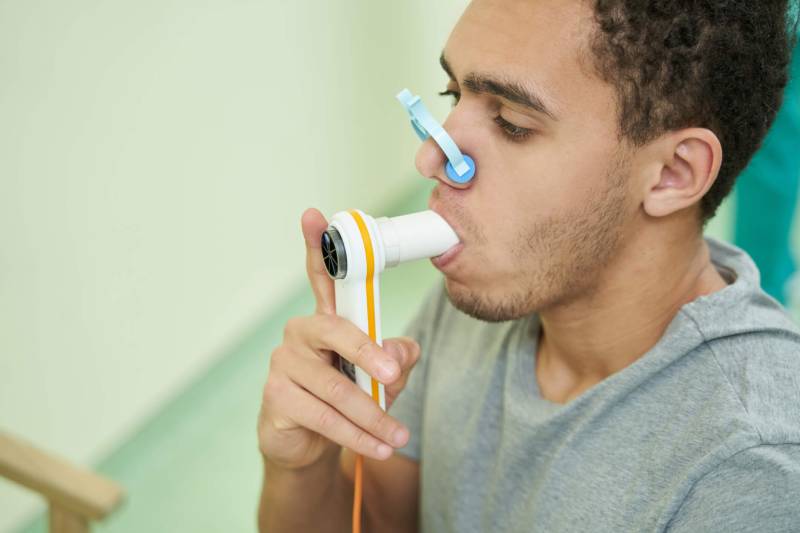27th July 2023
The Impact of Asthma on Quality of Life: Why Training is Key
In this week’s blog, we’re thinking about the role of training for healthcare professionals in improving quality of life for patients with asthma.
How many patients are we talking about?
In the UK alone, over 8 million people, or approximately 12% of the population, have been diagnosed with asthma, and evidence suggests that asthma accounts for 2-3% of primary care consultations. Around 160,000 new diagnoses are made each year in the UK, with the incidences in children being higher than in adults; this is reflective of international data which indicates that 11.6% of 6-7 year-olds worldwide are affected by asthma.
Where does training come in?
The fact that so many people are managing this condition day-to-day makes clear the need for high quality care. With the performance of the healthcare system so dependent on those delivering it, the value of education and training cannot be overstated. Healthcare professionals (HCPs) are entering the primary care workforce from an increasingly diverse range of backgrounds and may have minimal experience of supporting patients with asthma; accredited courses that explore that pathophysiology, diagnosis, and management of the condition are therefore key in upskilling these practitioners and assessing their knowledge of the condition to ensure it is both robust and up-to-date.

Impact on patient care
Developing HCPs’ knowledge of asthma enables them to improve the care they provide to their patients in numerous ways. Examples shared by our learners include how understanding different treatment options enhances person-centred care planning; familiarity with correct inhaler technique allows errors to be swiftly corrected; and the ability to interpret the results of objective tests supports differential diagnoses. In turn, this improved care helps patients to experience better quality of life as their asthma symptoms become more controlled and the detrimental effect on activities of daily living reduces.
Children and young people
The drive for training is especially evident following the publication of The National Capabilities Framework for Professionals who care for Children and Young People with Asthma. This document makes explicit the expected capabilities of practitioners at all levels, from non-HCP roles such as teachers or volunteers (Tier 1) through to specialists managing severe asthma cases (Tier 5). The inclusion of all roles in the framework highlights the importance of a joined-up approach to asthma support, with all adults involved in a child’s care equipped to help them manage their asthma in such a way that enables them to enjoy the same experiences as non-asthmatic peers. Details of accredited training courses for all Tiers can be found here.
A career-long commitment to learning
Of course, training doesn’t end at the beginning of an individual’s career. A commitment to ongoing professional development is implicit in the healthcare workforce, and it is important to remember that the more knowledge and know-how professionals can develop, the better the outcomes for their patients will be. A 2020 study identified that the point of diagnosis was cited by patients as the most valuable time to receive self-management advice, as embedding proactive habits from the outset of their asthma journey is key to maximising quality of life and helping to reduce the impact of asthma on their opportunities and experiences. With so many new diagnoses occurring each year, HCPs with cutting edge knowledge will be best-placed to provide person-centred care that is both evidence-based and empowering, and a career-long commitment to learning is key to achieving the very best patient outcomes.
For more information about Education for Health’s asthma courses, including accredited Higher Education modules and workshops at both introductory and refresher levels, please visit our Online Shop.
References:
Daines, L., Morrow, S., Wiener-Ogilvie, S., Scott, C., Steed, L., Taylor, S., and Pinnock, H. (2020) ‘Understanding how patients establish strategies for living with asthma: a qualitative study in UK primary care as part of IMP2ART’. British Journal of General Practice 2020; 70 (694): e303-e311. https://bjgp.org/content/bjgp/70/694/e303.full.pdf
NICE (2021) What is the prevalence of asthma?

